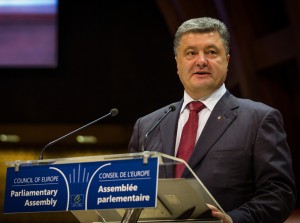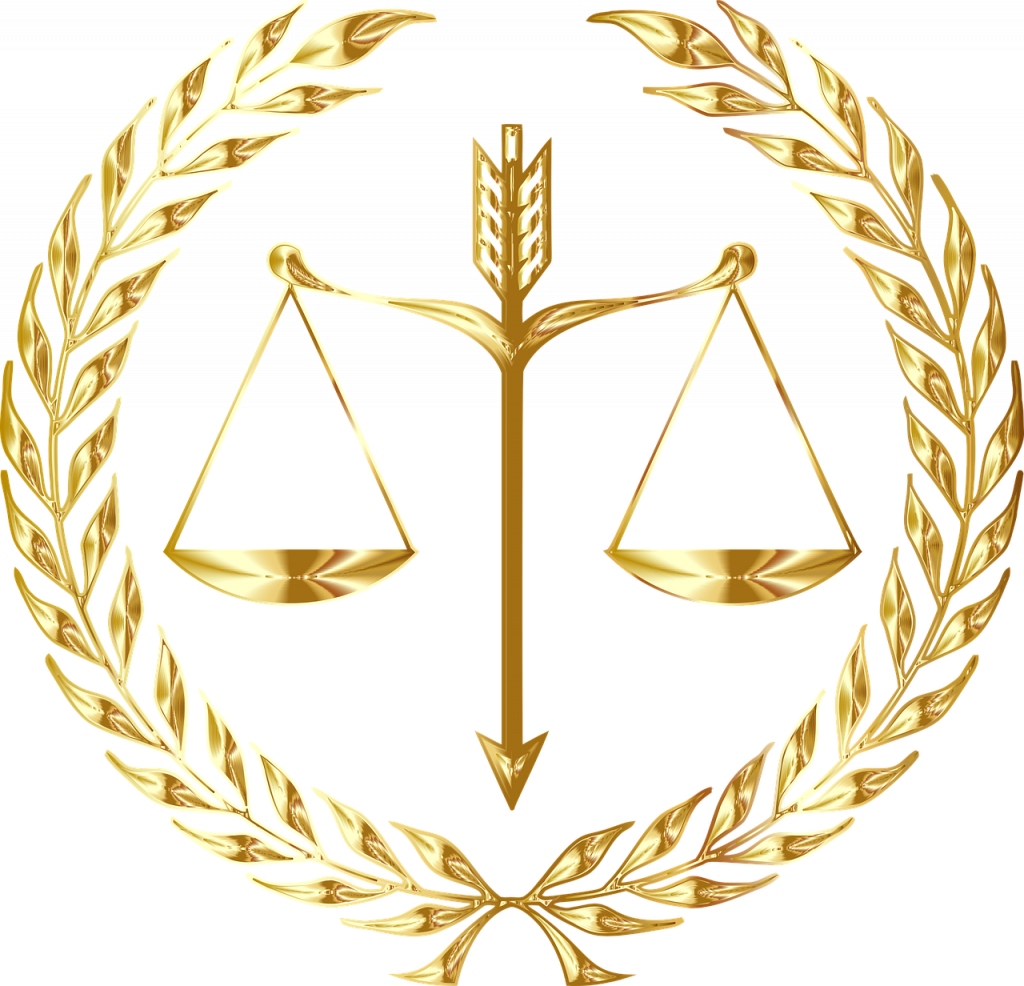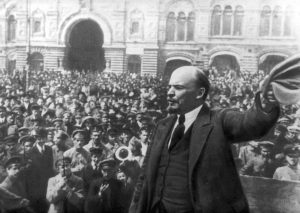Even if Ukraine’s President Petro Poroshenko has made the claim himself, you can rely upon the truth of it.
A few dozen right wing activists, spoiling for a fight, gathered outside Ukraine’s national parliament. A company of riot police had been drawn up in front. The super patriots launched an assault. One threw a grenade. A police officer died. Two others died later of their wounds. About 140 people, mostly police, were hospitalised.
That was Monday, August 31, in Kyiv: another unhappy day in Ukrainian public life.
The men who attacked the police lines identified themselves with two of Ukraine’s far Right parties — the Radical and “Svoboda” (Freedom) parties.
Between them, the Radicals and Svoboda mustered about 13 per cent of the vote during the October 2014 parliamentary elections.
The leaders of the two parties, Oleh Lyashko and Oleh Tyahynbok, denied any suggestion that their people were involved in the bloody event.
The man under investigation for throwing the grenade, Ihor Humeniuk, serves with the Ukraine Interior Ministry’s volunteer “Sich” Battalion. It has links to Svoboda.
The English-language Kyiv Post reported that two Svoboda party members – a former minister and a former MP – were under investigation for their role in the affair.
The Post also reported a police claim that Svoboda leader, Tyahynbok, had been in the war zone and in contact with “Sich” battalion members in the days leading up to the Kyiv riot.
Another report claimed that footage of the attack showed Tyahynbok actually present among his ‘troops’.
Bitter Minsk
The point at issue for the ‘demonstrators’ was legislation granting greater autonomy to Ukraine’s provinces. It had passed a First Reading the previous week. Its critics claimed that, by opening the way to greater autonomy for the Donbas provinces of Luhansk and Donetz, where Ukraine is fighting Russian-backed separatists, the devolution legislation – to which Ukraine committed itself under Minsk II — was a threat to national security.
Beside Svoboda and the Radicals, critics of the legislation include the Lviv-based “Samopomich” (Self Reliance) Party and Yulia Timoshenko’s much-reduced “Batkivshchyna” (Fatherland) Party. Awkwardly, the Radicals, Samopomich and Batkivshchyna all form part of the coalition supporting the government, led by Prime Minister Arseniy Yatsenyuk (People’s Front), which has the job of fulfilling Ukraine’s side of the Minsk II agreement.
The President of Ukraine, Petro Poroshenko, later claimed that the deaths and injuries were the work of Russian provocateurs and that the parliamentary coalition would carry on untroubled by the affair.
It will be interesting to see how that pans out.
A big ask
One of the toughest jobs in the world is being President of Ukraine. Even if Poroshenko has made the claim himself, you can rely upon the truth of it.
His job is tough because Poroshenko’s pathway to power went via the 2013 – 2014 Maidan that triggered a war with Russia. But that’s not the whole of it.
President Porosehnko not only has to fight the Russians and their proxy separatist forces. He also has to bring to heel the far Right political forces that staged the August 31 incident.
The problem is that without those Ukrainians who support groups like the Radical and Svoboda parties, the Maidan might have failed and Viktor Yanukovych survived.
Indeed, if it had not been for the military-like organization given the Maidan by Svoboda’s Tyahynbok, and the support of other right wing fractions, merging under the banner of “Pravy Sektor “(Right Sector), which rallied to the Maidan when it seemed on the brink of failure, the more mainstream, more middle class, anti-Yanukovych protestors might have been swept from the streets.
Barrel of a gun
To compound Poroshenko’s problem, the rebellion in the Donbas might not have been contained had not hastily raised militias come to the aid of Ukraine’s armed forces that, initially, were unready and unwilling to take on the separatists.
These volunteer battalions draw their recruits from networks connected with all the main right-of-center political parties with the notable exception of the Petro Poroshenko Bloc, the President’s own parliamentary grouping.
Fringe political groups such as Svoboda, Pravy Sektor and others, like the Organisation of Ukrainian Nationalists, also have played key roles in forming volunteer battalions. Their fighters, particularly those of Pravy Sektor, have gained a reputation for toughness and bravery that has won wide respect among their Ukrainian military peers.
While these volunteer units are being incorporated into the regular army, and subjected to its command structure, the work seems less than complete. Unit identities are strong and distinctive: which is not surprising, given their highly political corporate personae, and the fact that the volunteers have endured the toughest fighting, in particular around Donetz.
Furthermore, it is unclear how far those that have been brought under the command of the regular army have been weaned off their political connections and loyalties.
The blood spilt on August 31 indicates that there are groups of experienced fighters who are willing to take to the streets in response to the siren calls of their Right wing political leaders.
The far Right militia battalions might be less of a potential problem for Poroshenko were it not for the fact that all parties in the governing coalition – with the exception of the President’s own bloc – have been active promoters of particular militia units.
As a result, the background to Ukraine’s right-of-centre political geography is dotted with armed camps associated — some closely, others loosely — with one or another of Ukraine’s political parties or movements. Implementing Minsk II, which the Western powers strongly endorse, could harden the connections between the politicians and the militias and turn the latter into decisive players in Ukrainian political life. In that event, kiss goodbye to a “European Ukraine”.
Kamikaze Kid
At the same time, to attract and hold Western support, Poroshenko has committed himself to a domestic policy program more than capable of destroying his presidency. Even without a war on his hands, or militarized far-Right parties testing their political clout, just one item in that domestic policy could be enough to destroy the Poroshenko presidency.
I speak here of Ukraine’s banking system problems about which you will read little of substance in any of the major Western news media. I have called it before now Ukraine’s great silence.
Yes, Ukraine has a banking problem. Possibly there have been too many banks and too many small ones. Certainly, they have been undercapitalised, over-lent, and non-prudential in their practices. The standout problem has been oligarch-owned banks which exist, not to serve customers or even to turn a shareholder profit, but to raise money for oligarch business projects. Related-party lending is a notorious feature of the system.
Unhappily for the President, he has been yoked, politically, to a Prime Minister who relishes (to use an Australian political idiom) a Whitlamesque “crash through or … crash” mentality.
To nail down the ‘necessary’ reforms for Ukraine, Arseniy Yatsenyuk is quite prepared to commit political suicide. Well, he’s done that in genuine kamikaze style and just as he envisaged upon his appointment as Prime Minister. Understandably, and more damaging for the Western interest, he is dragging down Poroshenko with him.
Carnage
Yatsenyuk can boast that, to implement policies ultimately set by Washington and the IMF, he has liquidated 53 out of 180 banks since becoming Prime Minister on February 27, 2014.
To do that, however, he has wiped out the savings of an estimated 5 million large personal and business depositors not guaranteed by the national deposit guarantee fund. These losses stand at 100 Billion UAH (and possibly more) or 10 per cent of Ukraine’s pre-revolutionary GDP.
Anyone who can, is taking their money out of the banking system, or has done so already. Employees, whose wages are paid by EFT, head straight to the bank on payday to withdraw all that they can. Black market money traders operate openly on the streets with an insouciance not seen since Soviet days. No-one trusts the banking system. The mattress and US dollars are highly esteemed.
Quite an achievement
Intolerant of incremental reform, and consistent with his revolutionary penchant, Yatsenyuk went for the big bang. It was no surprise then when a March 2015 poll, conducted by the Kyiv Research & Branding Group, found that, had elections been called at that time, Yatsenyuk’s People’s Bloc (which won 22 per cent of the vote in the October 2014 parliamentary elections) would have crashed to 2.5 per cent – way below the 5 per cent threshold required for its candidates to be elected on the party list.
Also, had a Presidential election been held in March, RBG found that Poroshenko’s support would have fallen to 19 per cent from the 54 per cent he won in the presidential election of May 2015. Poroshenko, however, would still have won the theoretical election because other candidates were so far behind him.
Still, it is not a good look. Arseniy Yatsenyuk and his People’s Front are so much lead in Poroshenko’s saddle.
Scenario
Unless Petro Poroshenko can create a new coalition of the Centre Right, free of the policy dangerous Yatsenyuk, and, among other things, adopts a determined policy of savings restitution, then Ukraine’s politics are headed much further to the Right.
You’ll know that the shift is on when Batkivshchyna, Samopomich, and the Radicals (not to mention others further Right) break the remarkable international omertà over Yatsenyuk’s banking policy disaster.
You will also then hear them talking more loudly about something dear to their nationalist hearts: the re-nuclearisation of Ukraine’s armed forces.
Both issues, once raised, will get a receptive hearing on the streets.
Warning
Western do-gooders, take care.
Unless Poroshenko steals a march on the parties to his Right, and commits himself to repairing the bank carnage wrought on his watch, and unless you fund him to restore savings destroyed by implementing your policies, Ukraine’s far Right will make hay with the banking issue.
And, if Ukraine’s recently raped middle class shifts decisively to the Right, the West could be confronted with a potential break out from the nuclear non-proliferation régime smack bang in Europe.
Think of that.
This article first appeared at Scarra Blog.










Comments